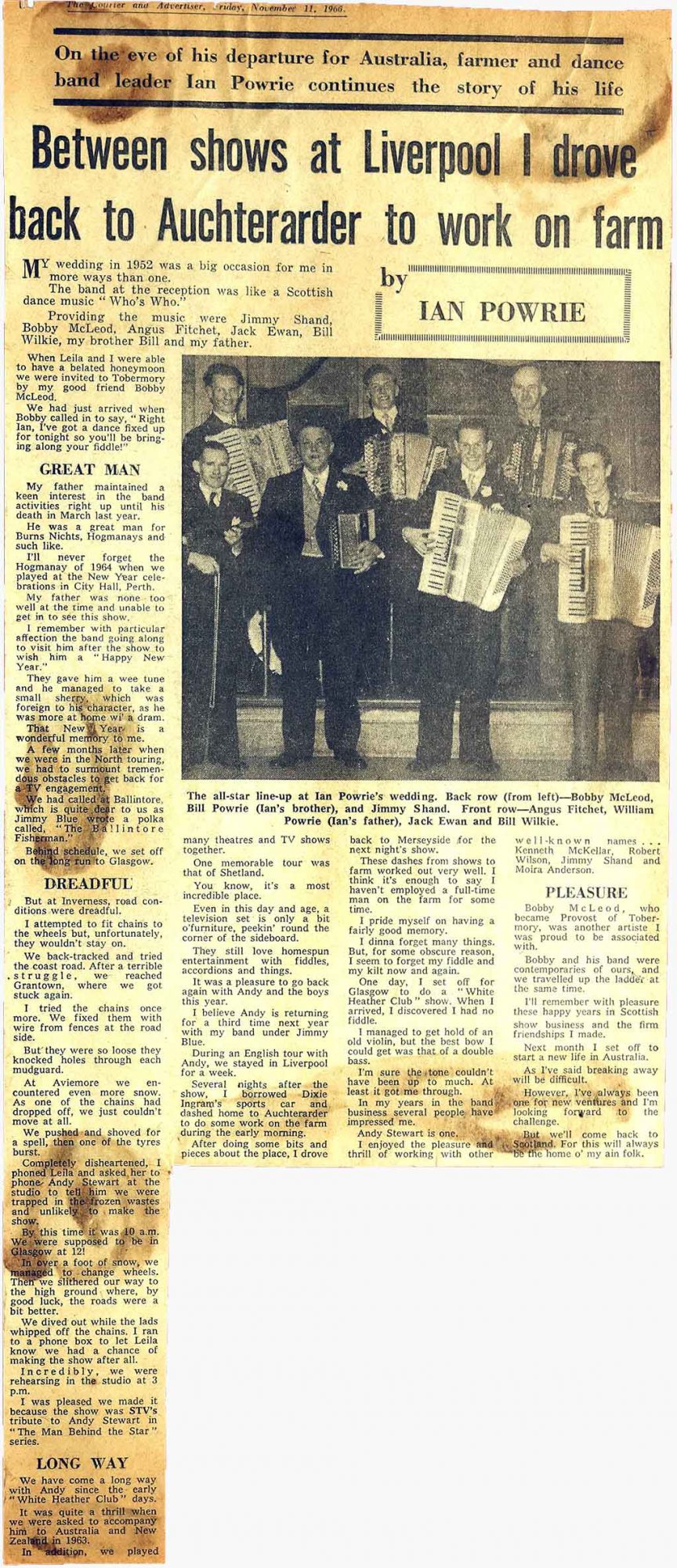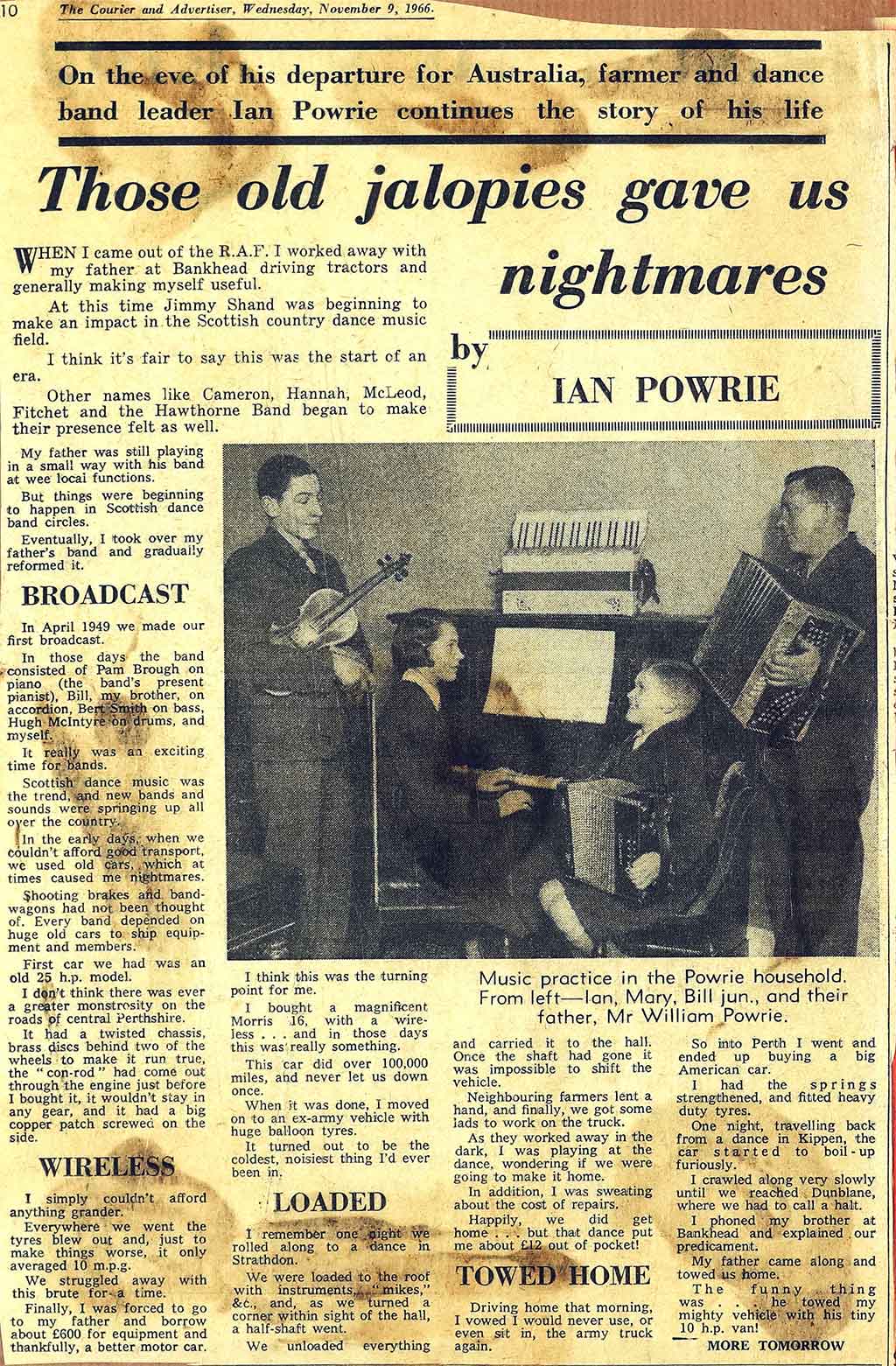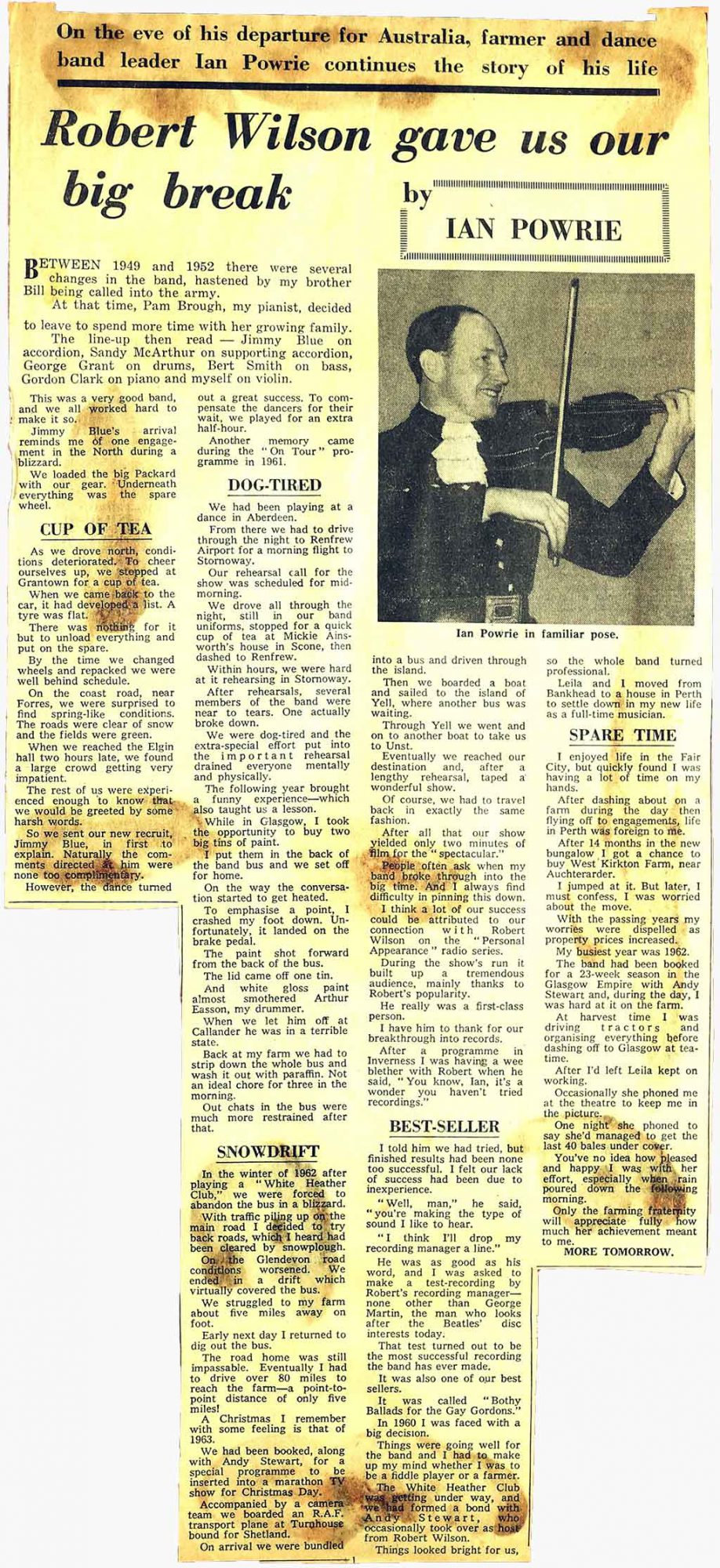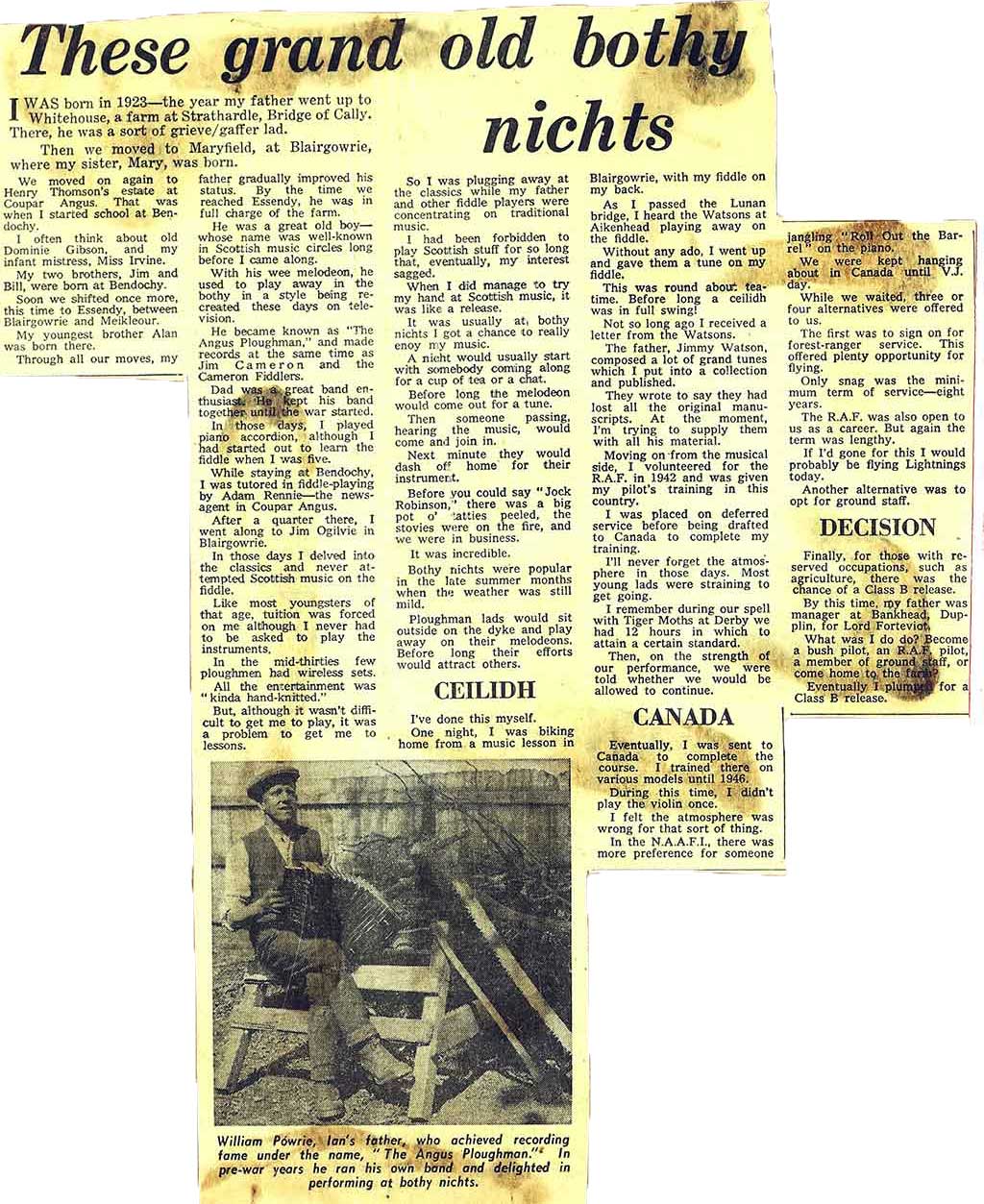
The Courier and Advertiser (5) – November 1966
On the eve of his departure for Australia, farmer and dance band leader Ian Powrie continues the story of his life.
Between shows at Liverpool, I drove back to Auchterarder
to work on farm by IAN POWRIE
MY wedding in 1951 was a big occasion for me in more ways than one. The band at the reception was like a Scottish dance music ‘Who’s Who’. Providing the music were Jimmy Shand, Bobby McLeod, Angus Fitchet, Jack Ewan, Bill Wilkie, my brother, Bill and my father.When Leila and I were able to have a belated honeymoon, we were invited to Tobermory by my good friend, Bobby McLeod. We had just arrived when Bobby called in to say, “Right, Ian, I’ve got a dance fixed up for tonight, so you’ll be bringing your fiddle.”
GREAT MAN
My father maintained a keen interest in the band activities right up until his death in March last year. He was a great man for Burns Nichts, Hogmanays and such like. I’ll never forget the Hogmanay 1964 when we played at the New Year celebrations in the City Hall, Perth. My father was none too well at the time and unable to get in to see the show. I remember with particular affection the band going along to visit him after the show to wish him Happy New Year. They gave him a wee tune and he managed to take a small sherry, which was foreign to his character, as he was more at home with a dram. That New Year is a wonderful memory to me.
DREADFUL
A few months later when we were in the North touring, we had to surmount tremendous obstacles to get back for a TV engagement. We had called at Ballintore, which is quite dear to us as Jimmy Blue wrote a polka called “The Ballintore Fishermen”. Behind schedule, we set off on the long run to Glasgow but at Inverness, road conditions were dreadful. I attempted to attach chains to the wheels but, unfortunately, they wouldn’t stay on. We backtracked and tried the coast road. After a terrible struggle, we reached Grantown, where we got stuck again. I tried the chains once more. We fixed them with wire from fences at the roadside, but they were so loose, they knocked holes through each mudguard. At Aviemore, we encountered even more snow. As one of the chains had dropped off, we just couldn’t move at all. We pushed and shoved for a spell, then one of the tyres burst. Completely disheartened, I phoned Leila and asked her to phone Andy Stewart at the studio to tell him we were trapped in the frozen wastes and unlikely to make the show. By this time, it was 10 am. We were supposed to be in Glasgow at 12!
In over a foot of snow, we managed to change wheels. Then we slithered our way to the high ground where, by good luck, the roads were a bit better. We dived out while the lads whipped off the chains. I ran to a phone box to let Leila know we had a chance of making the show after all. Incredibly, we were rehearsing in the studio at 3 pm. I was pleased we made it because the show was STV’s tribute to Andy Stewart in “The Man Behind the Star” series.
LONG WAY
We have come a long way with Andy since the early “White Heather Club” days. It was quite a thrill when we were asked to accompany him to Australia and New Zealand in 1963. In addition, we played many theatres and TV shows together. One memorable tour was that of Shetland. You know, it’s a most incredible place. Even in this day and age, a television set is only a bit o’ furniture peekin’ round the corner of the sideboard. They still love homespun entertainment with fiddles, accordions and things. It was a pleasure to go back again with Andy and the boys this year. I believe Andy is returning for a third time next year with my band under Jimmy Blue.
During an English tour with Andy, we stayed in Liverpool for a week. Several nights after the show, I borrowed
Dixie Ingram’s sports car and dashed home to do some work on the farm during the early morning. After doing some bits and pieces about the place, I drove back to Merseyside for the next night’s show. These dashes from shows to farm worked out very well. I think it’s enough to say I haven’t employed a full-time man on the farm for some time.
I pride myself on having a fairly good memory. I dinna forget many things but for some obscure reason I seem to forget my fiddle and my kilt now and again. One day, I set off for Glasgow to do a “White Heather Club” show. When I arrived, I discovered I had no fiddle. I managed to get a hold of an old violin, but the best bow I could get was that of a double bass. I’m sure then tone couldn’t have been up to much. At least it got me through.
The Courier and Advertiser (5) – November 1966 cont/…
PLEASURE
In my years in the band business, several people have impressed me. Andy Stewart is one. I enjoyed the pleasure and thrill of working with other well-known names…Kenneth McKellar, Robert Wilson, Jimmy Shand, Moira Anderson.
Bobby McLeod, who became Provost of Tobermory, was another artiste I was proud to be associated with. Bobby and his band were contemporaries of ours and we travelled up the ladder at the same time. I’ll remember with pleasure these happy years in Scottish show business and the firm friendships I made. Next month, I set off to start a new life in Australia. As I’ve said, breaking away will be difficult. However, I’ve always been one for new adventures and I’m looking forward to the challenge. But we’ll come back to Scotland for this will always be the home o’ my ain folk.


